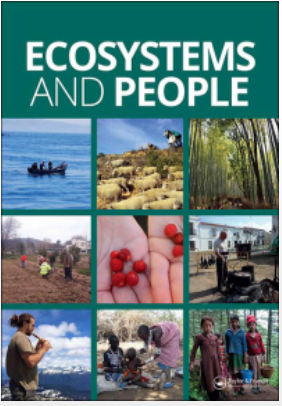与残疾人一起实现可持续和公正未来的途径:杠杆点视角
IF 3.7
Q1 Agricultural and Biological Sciences
引用次数: 0
摘要
当前的气候和环境危机对残疾人的影响尤为严重。然而,在解决这些挑战的过程中,他们几乎没有被包括在内,他们的知识也被忽视了。为实现联合国2030年议程,社会应在科学和政策背景下积极参与残疾人所拥有的价值观、经验和知识。在本文中,我们建议通过以下方式解决“深层”杠杆点:1)认识到不同社会群体对自然的不同评价和与自然的联系(即重新与自然联系);2)在决策和知识创造中包括残疾人群(即重组机构);3)促进包容性教育和知识生成(即重新思考知识生产)可以促进包容性转型路径的发展,促进可持续的人与自然关系。本文章由计算机程序翻译,如有差异,请以英文原文为准。
Pathways towards sustainable and just futures with and for disabled populations: a leverage points perspective
Disabled populations are disproportionally affected by the current climate and environmental crises. However, they are hardly included and their knowledge is neglected in processes addressing these challenges. To achieve the UN Agenda 2030, societies should actively engage with the values, experiences and knowledge held by people with disabilities in science and policy contexts. In this paper, we suggest that addressing ‘deep’ leverage points by 1) recognising diverse valuations of and connections to nature by different social groups (i.e. re-connecting to nature), 2) including disabled populations in decision-making and knowledge creation (i.e. re-structuring institutions), and 3) promoting inclusive education and knowledge generation (i.e. re-thinking knowledge production) can facilitate the development of inclusive transformation pathways and foster sustainable human-nature relationships.
求助全文
通过发布文献求助,成功后即可免费获取论文全文。
去求助
来源期刊

Ecosystems and People
Agricultural and Biological Sciences-Ecology, Evolution, Behavior and Systematics
CiteScore
7.80
自引率
11.30%
发文量
40
审稿时长
42 weeks
期刊介绍:
Ecosystems and People is an interdisciplinary journal that addresses how biodiversity and ecosystems underpin human quality of life, and how societal activities and preferences drive changes in ecosystems. Research published in Ecosystems and People addresses human-nature relationships and social-ecological systems in a broad sense. This embraces research on biodiversity, ecosystem services, their contributions to quality of life, implications for equity and justice, and the diverse and rich ways in which people relate to nature.
 求助内容:
求助内容: 应助结果提醒方式:
应助结果提醒方式:


